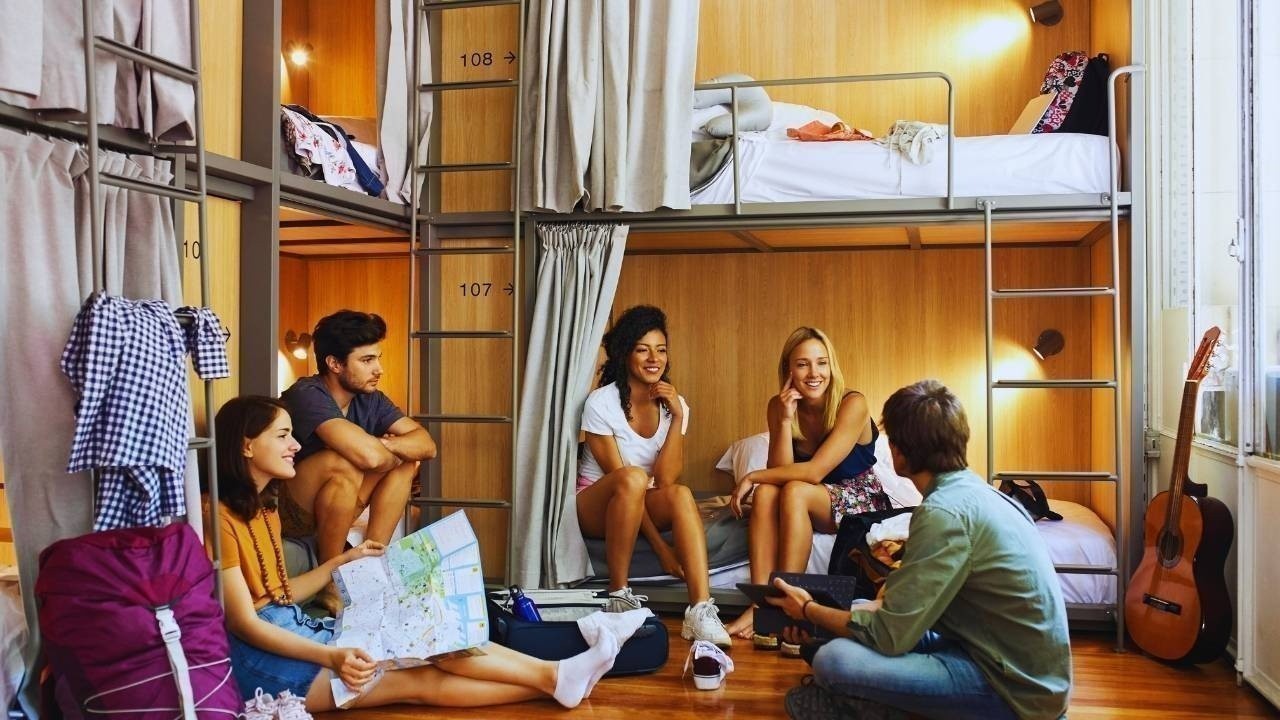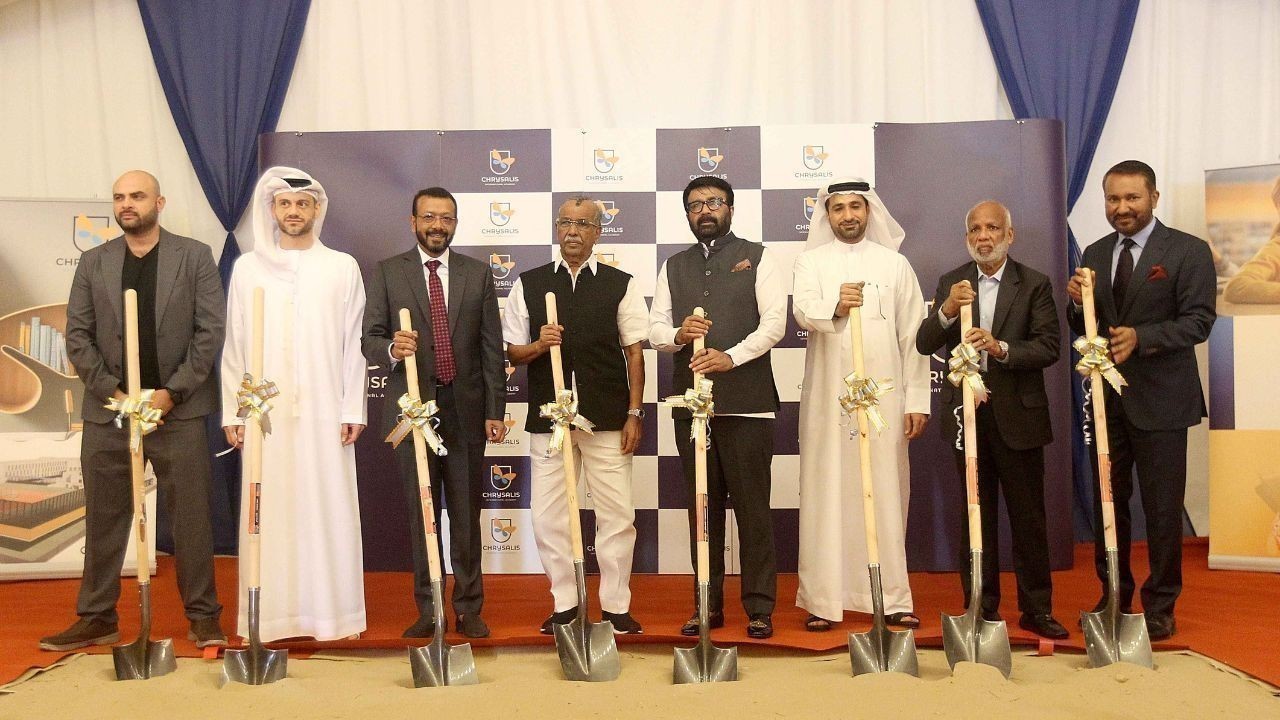
Post by : Anis Karim
A wave of activity swept through hostels and co-living spaces this week — not just as a blip, but as a clear signal of a deeper shift in how people travel, work and stay. The desk-at-home has given way to desks in shared lounges; the one-night hotel stay is being replaced by week-long stays in community-centred accommodation; and the "destination holiday" is morphing into a work-enabled stay-cation or remote-task trip.
For the modern traveller who blends remote or hybrid work with travel, the accommodation playbook is changing fast. Traditional hotels, while still relevant, are increasingly less appealing for someone planning to stay for a week or more, work with a reliable setup, and connect socially. Instead, hostels with coworking lounges, co-living spaces with flexible leases, and hybrid-hospitality models that combine living, working and community are gaining fill-rates.
In what follows I’ll explore what triggered this uptick, how hostels and co-living operators are adapting and thriving, what this means for travellers and content creators, and how to apply these insights into stories, features or service-coverage.
Remote and hybrid work arrangements aren’t new, but what we’re seeing now is their spill-over into travel decisions. Employees don’t just work from home anymore — they work from anywhere. In many cases, "anywhere" includes hostels and co-living spaces designed for exactly that: stay for a while, work reliably, mingle socially. Surveys indicate that a significant share of remote-capable workers expect to combine travel and work on the same trip.
Data from short-term rental markets show that stay lengths are rising. The typical traveller now books longer periods when stays are tied to work rather than purely leisure. This has created a gap in accommodation: hotel rooms often cost more, have shorter minimums, and lack community. Hostels and co-living fill that gap: they offer beds or rooms for a few days to a few weeks, communal spaces, and a social angle.
Modern travellers aren’t just after a comfortable bed—they want connection, local immersion, community. Hostels are capitalising on this by evolving into experience-first spaces with coworking areas, events, social lounges, and local networking. Co-living spaces emphasise shared kitchens, communal lounge areas, and social programming. The value-add is not just accommodation but belonging-for-a-period.
Longer stays, shared amenities, and flexible lease terms mean travellers can stretch budgets. Co-living packages often include utilities, WiFi, cleaning and access to coworking zones—all in one-rent. Hostels, traditionally budget-friendly, now elevate their offering to mid-segment stays for hybrid workers. The combination of affordability, flexibility and amenities drives demand.
Improved WiFi, dedicated workspaces, digital check-in, flexible stays, all these have made non-hotel stays viable for remote work. Meanwhile, evolving travel behaviour — mixing leisure and work, shifting stay locations, choosing second cities or alternative destinations — supports the rise of hybrid-accommodation. Many hosts and operators have adapted in response to this blending of living, working and travelling.
Hostel operators are repurposing common areas into coworking zones, adding meeting rooms, sound-proof phone-booths, high-speed internet and lounge kitchens. Co-living developers are similarly integrating work-friendly alcoves, shared work-desks, and social programming into living units. This week’s booking surge reflects these changes meeting real demand.
Traditional accommodation often operates on rigid minimum stays. Hostels and co-living spaces are offering weekly packages, month-long leases, and even nightly flexibility for those combining work and travel bursts. Some co-living operators are launching short-stay verticals specifically aimed at professionals who will stay for weeks rather than years.
Where once hostels offered free breakfast and a city tour, now they host skills workshops, networking nights, Sunday coworking brunches, group excursions combining leisure and wellness. Co-living spaces promote communal dinners, social mixers, film nights, and local culture immersion. These community elements add emotional value and keep occupancy high.
A hybrid hospitality model is emerging: a blend of hostel, co-living and hotel features. Private rooms for short stays, shared dorms for budget stays, coworking desks, café amenities, extended-stay suites — all in one property. The result: accommodation that serves backpackers, digital nomads, remote workers and longer-stay professionals alike. Operators report better occupancy and diversified revenue streams by catering to multiple guest profiles.
While metros remain core, many of these stay-spaces are opening in secondary cities, near coworking hubs, in leisure-destination suburbs — places that allow a balance of work and lifestyle. Week-this-week, many bookings shifted to such locations, signalling traveller appetite for alternative destinations beyond standard urban cores.
If you’re a hybrid-work traveller — someone who plans to stay several days or weeks, attend to work tasks and still explore a destination — then hostels or co-living spaces might be your best play. Here’s what to look for:
Stable, high-speed internet and dedicated work zones
Comfortable communal areas and private spaces for calls/meetings
Flexible stay terms and transparent pricing (weekly/monthly rather than single night only)
Social and community programming, optional networking
Convenient location for both work (connectivity, transport) and lifestyle (local cafés, recreation)
Harness the value: shared kitchens lower food cost, social areas reduce isolation, and flexible terms allow you to move if needed. For travellers working remotely, this can enhance productivity and well-being compared to a standard hotel room.
While community is a draw, you’ll still value privacy when working. Ensure the accommodation offers zones for quiet, private calls or focused tasks. The ideal setup allows for collaboration and leisure without sacrificing concentration.
Hybrid travellers should structure stays accordingly: have morning work-blocks, afternoon excursions, evening social or rest. Hostels and co-living spaces make this easier by embedding both work-friendly and leisure-friendly spaces into one stay. Your travel becomes a rhythm of productivity and enjoyment.
While you may think “travel” ultimately, the objective is living and working temporarily in a location. Choose secondary cities or lifestyle-friendly destinations that offer both leisure and remote-work viability. The rise in bookings this week across hostels in alternative destinations reflects that trend.
“Bookings up this week at hostels in [City]: why hybrid workers are choosing alternative stays”
“How co-living spaces are becoming the go-to for week-long remote work trips”
“Hybrid-accommodation: when hostels meet remote work in 2025”
“From backpacker bunk to remote-desk chic: hostels reimagined for hybrid travellers”
Consider themes like: “hybrid work travel accommodation”, “remote work hostel trend 2025”, “co-living short-stay week remote professionals”, “hostel bookings spike hybrid work travellers”, “work-away stays hostels co-living 2025”.
Lead: Highlight the surge in bookings this week and problem statement (traditional hotel no longer optimal).
Context: Explain the broader shift in work and travel behaviour.
Case Study: Feature one or two hostels/co-living spaces with data on occupancy, quotes from operators or guests.
Traveller Guide: What hybrid-work travellers need, how to choose a stay, cost & location considerations.
Future View: What this means for accommodation industry, travel marketing, destination strategy.
Conclusion: Reflect on the new playbook for travellers and operators.
Include images of coworking lounges in hostels, digital-nomad guests working in shared kitchens, community events at co-living spaces, secondary-city accommodation exteriors. This helps highlight the fusion of work, travel and lifestyle.
Remote-work stays demand more than “good WiFi.” They need stable connection, power backup, private spots for calls, ergonomic setups. Hostels and co-living operators must deliver to satisfy professional expectations. Travellers should verify.
Social environments are appealing, but overloaded social energy can disturb focus. Spaces should offer differentiated zones: quiet, communal and private. Hybrid travellers should check reviews on how well work/leisure segmentation is done.
The destination itself still matters. If you’re staying for work, you’ll prefer places with good amenities, connectivity, leisure options. A hostel in an isolated area might be cheaper but less supportive of work-travel equilibrium.
While flexible stays (week, month) are available, they may come with premium pricing compared to long-term rental. Understand cost trade-offs: what is included (utilities, coworking desks, cleaning) and what isn’t.
For operators, this hybrid model means multi-profile accommodation: short-term travellers, remote workers, longer-stay professionals, social + quiet zones. Ensuring smooth operations, segmenting service levels and maintaining community without chaos is challenging.
Subscription-based stays: Monthly memberships for access to hostel/co-living networks globally.
Workation packages: Dedicated packages combining accommodation, coworking, local experiences, wellness and networking.
Destination diversification: Growth in secondary cities, smaller towns, leisure-locations turning into remote-work hubs.
Increased corporate tie-ups: Companies offering bookings at co-living spaces instead of hotels for visiting or relocating employees.
Technology integration: Seamless booking, digital keys, workspace scheduling, service apps integrated into stay.
Community monetisation: Beyond bed-rental, revenue from coworking desks, events, food & beverage, long-stays.
The surge in hostels and co-living bookings this week isn’t incidental — it’s part of a broader transformation in how work and travel intersect. For hybrid-work travellers, the old accommodation model (short hotel stays, rigid leases, isolated rooms) is giving way to a new playbook: flexible stays, work-friendly spaces, community surroundings, week-plus durations and destination-lifestyle balance.
For operators, the opportunity lies in meeting this demand via spaces that fuse living and working, social and solo, stay and surf. For travel writers and content creators, the story is rich: the rise of the accommodation format that supports the modern work-traveller, the destinations adapting to this demand, and the practical advice needed by those living-on-the-move.
If you’re travelling this week with work on the mind, consider the hostel or co-living stay where a video call precedes the sunset walk, where your desk sits beside someone’s travel narrative, where your stay is as much about community and atmosphere as it is about convenience.
Because the playbook has changed—and staying somewhere isn’t just part of the trip anymore. It is the trip.
This article is for editorial and informational purposes only. It explores trends in accommodation and travel behaviour and is not a substitute for professional travel planning or accommodation advice.

Dubai Racing Carnival Opens at Meydan with Top Horses
Dubai Racing Carnival begins at Meydan with 73 horses in 7 races, featuring top local and internatio

UAE Warriors 65 Set for Al Ain, Features Women’s World Title Fight
UAE Warriors 65 returns to Al Ain on Nov 15, featuring 13 MMA bouts, including a women’s world title

Travel Influencer Anunay Sood Dies at 32; Peers Remember His Energy and Spirit
Travel influencer Anunay Sood dies unexpectedly at 32. Fellow creators and adventurers remember his

UAE Tops MENA in ESG Integration, Driving Sustainable Growth
UAE leads MENA in ESG adoption, with companies linking sustainability to business outcomes, employee

Chrysalis International Academy Ushers New Era in Dubai Schools
Nalapad Investments & MVK Holdings break ground on Chrysalis Academy in Dubailand, blending British

Warner Bros Discovery Q3 Revenue Misses Expectations
Warner Bros Discovery posts $9.05B Q3 revenue, falling short of estimates, driven by weak streaming

Soha Ali Khan Shares Fun & Rare Family Dinner Stories
Soha Ali Khan opens up about family dinners, her parents, and siblings, sharing rare anecdotes and i

The New Season Alert Maharani Season 4 Coming Soon
Maharani Season 4 arrives on SonyLIV with Huma Qureshi as Rani Bharti facing new rivals bold politic

Paramount+ to Stream PBR’s Top Bull Riding Series in 2025
Paramount+ secures 5-year rights for PBR's "Unleash the Beast," streaming live across 17 states from

Zohran Mamdani Victory Speech Goes Bollywood with Dhoom Machale
Zohran Mamdani wins NYC mayor race, becoming the city’s first Muslim and South Asian mayor, making h

UAE Life High Stress 3 Simple Ways Expats Can Manage Pressure
Expats in the UAE face daily pressure and burnout Learn 3 simple effective ways to manage stress fin

Smart Meal Prep in Dubai Save Money Stay Healthy
Plan smart eat fresh Discover how meal prepping in Dubai helps you save money eat healthy and enjoy

The Ultimate Guide to Dieting in Dubai Keto vs Vegan vs Mediterranean
Discover Dubai’s top diet trends Keto Vegan and Mediterranean Find which plan fits your lifestyle f

Stay Fit in Dubai 7 Fun Outdoor Workouts Without a Gym
Explore 7 fun ways to stay fit in Dubai from beach runs to desert hikes and skyline yoga No gym nee

Beyond Biryani: Mastering Portion Control in Dubai’s Melting Pot of Cuisines
Discover how to enjoy Dubai’s diverse cuisines wisely Learn simple portion control tips to stay heal